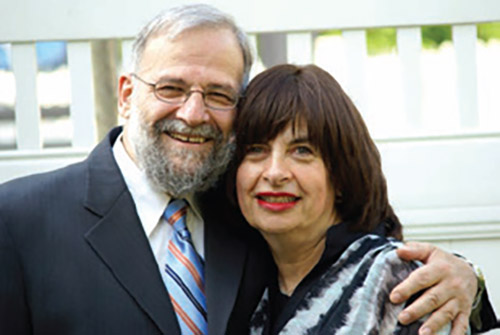
We wonder sometimes if Jews are uniquely focused or concerned about what other people might say about us, or others. Stigma seems to plague our community and greatly influence our friendships, relationships and thoughts.
Before it happened, we had no clue that the fact that Mordechai received his semicha from Yeshiva University would impact the way we were looked upon (negatively) by the yeshivish community in Montreal. Although our children attended what were considered more “to the right” yeshivot (Bais Yaakov and the Yeshiva), there was still a hesitation among some to accept us as friends and, even more so, to accept our children as friends of their children.
We took pride in the fact that our home was open to Jewish people from many different walks of life. Many of our guests had never experienced a Shabbat meal before coming to our home. For us this was an opportunity to share the beauty of Yiddishkeit. This, for some, was another strike against us because they considered that the “different” guests would have a negative effect on our/their children and household, therefore preferring that their children did not visit us for Shabbat.
In earlier generations, and for some even today, having a child with a physical or developmental disability within a family might have led them to (what we considered unthinkable) place their child with either a foster family or in a group home. Their goal in many cases was to ensure that no one will know that the child exists. We know to this day of families who have made this choice.
For those who have experienced mental illness within a family, they are aware of the pain and suffering they go through in deciding whether to make the information public knowledge or keep it to themselves. As Mordechai has said so many times, a mental illness is so much more difficult than a physical ailment in sharing with others and in treating.
We have a problem, and today it is definitely being exacerbated and maybe even caused by the ridiculous, ridiculous (sorry, we needed to repeat it again) world of shidduchim. At the outstanding forum on the addiction crisis we are all facing today, Rabbi Zvi Gluck, director of Amudim, stated that he feels that the dirtiest word in the community today in battling the addiction epidemic is shidduchim. People would choose to not have treatment and choose to run the risk of an overdose rather than attach the stigma to their children whose mother or father has faced an addiction. This is the faulty logic borne of a community plagued by what others might think.
Our community must no longer put concern about what others will think of us above what is necessary and important. Young men and women who suffer from mild emotional disorders such as anxiety, depression, anorexia (we said mild) and others, and have taken or are taking medication for their issues, find it harder and harder to find shidduchim. How can they be tainted by addressing their issues? They are often the nicest, kindest, most mature of people working as hard as they can to overcome their demons; of course they can and should make a place for themselves in our world together with a loving partner.
“Others should take chances,” people think. “Certainly not our own children.” Perfection is what everyone is looking for. What we find so totally baffling are those who find Mr. or Ms. Perfect and later find out that even with the resume and all of the checking they have done, the person is not living up to their expectations. Then comes the next difficult decision. There is also quite a stigma attached to divorced or broken-engagement individuals. How many of us are willing to give this a chance?
Isn’t it time that we all grow up and look at life slightly more realistically?
Take the word stigma and throw it out with the wide ties, the all-black dresses from several years ago, the fried foods that we now say are unhealthy and the many social events for young people who are no longer allowed because a boy and a girl might speak to each other casually and naturally.
No one is perfect. It is not our business to judge. Leave that to the courts. We will all be happier.
By Rabbi Mordechai and Nina Glick













